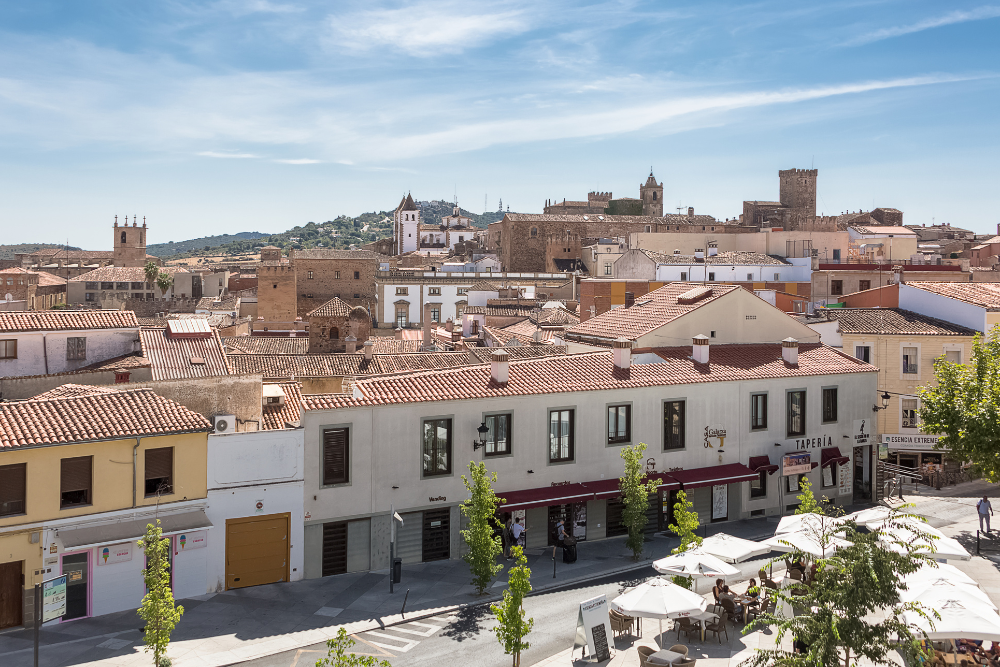Spain is a country steeped in rich traditions, lively festivals, and a diverse cultural heritage. Whether you’re visiting the vibrant cities, rural villages, or coastal regions, understanding the local customs and etiquette is essential to making the most of your experience. Spanish people are known for their warm hospitality, but showing respect for cultural norms can help you avoid misunderstandings and enhance your interactions with locals. Here’s a guide to the do’s and don’ts of cultural etiquette in Spain.
1. Do Greet People with a Warm “Hola” and a Friendly Kiss

In Spain, greetings are an important part of social interaction. When meeting someone for the first time or entering a room, it’s customary to say “Hola” (hello) or “Buenos días” (good morning) to acknowledge those around you. Spaniards tend to be quite affectionate with greetings. It is common for people, even in formal situations, to greet each other with two kisses on the cheeks — one on each side — regardless of gender. In some regions, a handshake may be more appropriate, especially in business settings, but the cheek kiss is generally the norm.
When entering a shop or restaurant, it’s polite to greet the staff with a friendly “buenos días” or “buenas tardes” (good afternoon). This gesture will be appreciated and can help create a welcoming interaction.
2. Don’t Rush Through Meals

Meals in Spain are often a social event and are meant to be savored and enjoyed at a leisurely pace. Don’t expect quick, rushed meals like you might encounter in other countries. Lunch (the largest meal of the day) typically takes place between 1:30 pm and 3:30 pm, followed by a siesta (afternoon break) in some regions, though this is less common in big cities. Dinner is usually served late, around 9:00 pm to 11:00 pm, and it’s often a relaxed gathering with family and friends.
If you’re invited to a Spanish home for a meal, be prepared to spend a few hours eating and chatting. Don’t try to rush through your food, as doing so might be seen as disrespectful. It’s important to embrace the Spanish tradition of enjoying long, leisurely meals.
3. Do Respect the “Siesta” Time

The siesta is a deeply ingrained tradition in many parts of Spain, especially in the warmer regions. While modern life has altered this custom somewhat, many shops, restaurants, and offices close for a few hours in the afternoon, typically from 2:00 pm to 5:00 pm, so employees can rest or eat a long lunch. If you’re in a smaller town or rural area, be aware that businesses may be closed during this period.
It’s polite to respect this time of rest and relaxation by not expecting to conduct business or make purchases during these hours. In larger cities, the siesta is less observed, but it’s still a good idea to plan your day accordingly.
4. Don’t Talk About Politics or Bullfighting in Casual Conversations

While Spain is known for its passionate debates, it’s best to avoid discussing sensitive topics such as politics, regional independence (e.g., Catalonia), and bullfighting, unless you are well-acquainted with the person and know they are open to such discussions. These topics can quickly become heated, and strangers or acquaintances may not appreciate being drawn into debates about them.
It’s also important to respect the diversity of Spain’s regions and cultures, such as Catalonia, the Basque Country, and Andalusia. Spain is a collection of distinct regions, each with its own identity, language, and customs. Be sensitive to regional differences and avoid making generalizations about the country as a whole.
5. Do Dress Modestly, Especially in Religious Sites

While Spain is generally a fashionable country, modesty is still valued, especially when visiting religious sites such as churches, cathedrals, and monasteries. When entering places of worship, it’s respectful to cover your shoulders and wear appropriate attire. In some churches, women are asked to cover their heads with a scarf, though this is less common today.
In general, Spaniards tend to dress stylishly and put effort into their appearance. While casual attire is acceptable in most situations, particularly in the summer, it’s important to avoid looking too disheveled or underdressed, especially in urban areas or during evenings out.
Conclusion

By respecting local customs, from greetings and dining habits to the importance of persoUnderstanding cultural etiquette in Spain is key to making a good impression and enjoying your time in the country. nal relationships, you’ll be able to navigate social situations with ease and engage in meaningful interactions with the warm, friendly people of Spain. Whether you’re in the bustling streets of Madrid, the beaches of Costa Brava, or the historic towns of Andalusia, following these do’s and don’ts will help you experience Spain to the fullest.












